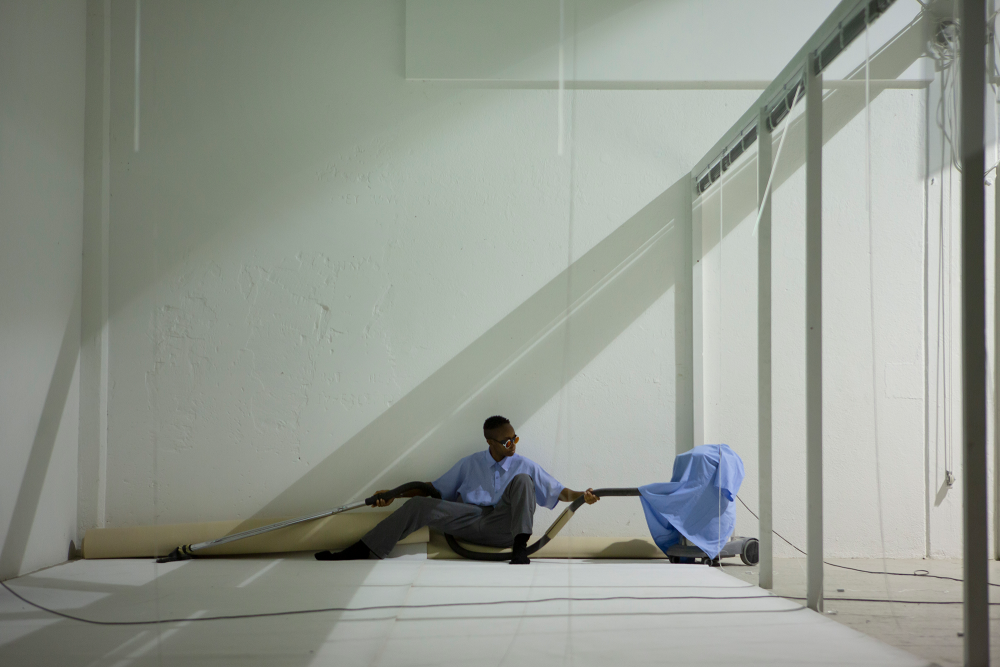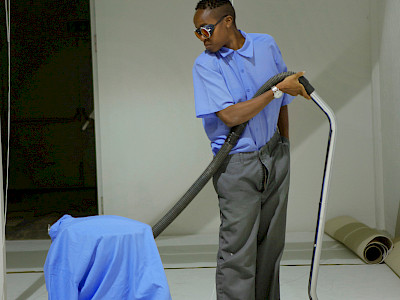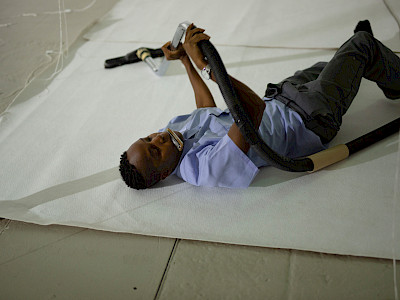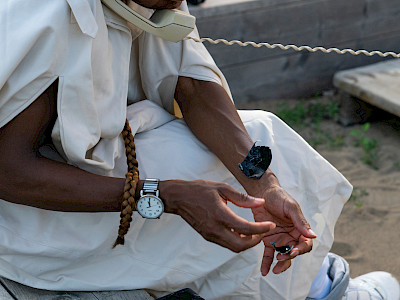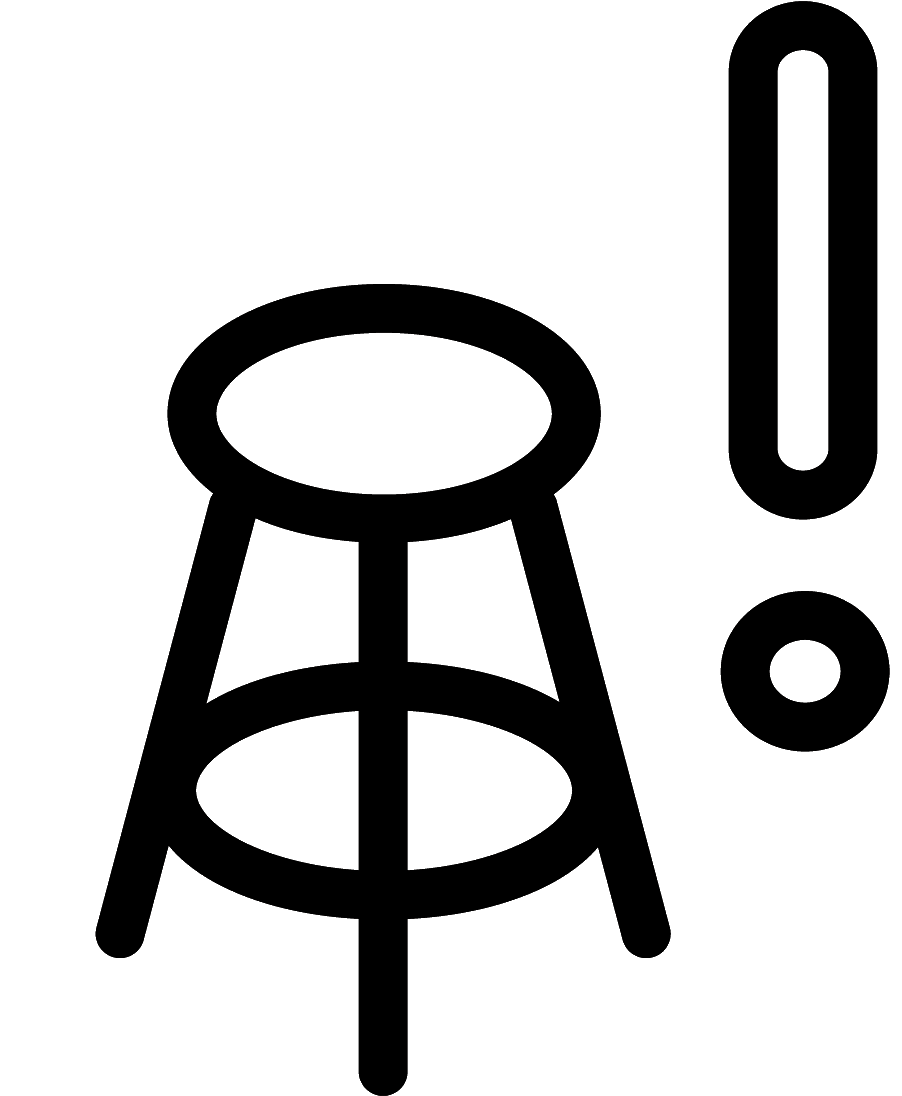19 — 22.05.2023
Dana Michel masters the art of diverting the functions of objects, creating situations with an elusive logic. Everything in her approach escapes binarity or linearity; she deconstructs normative behaviour and favours absurdity over provocation. In short, she questions the modes of existence with humour and depth. After her successful CUTLASS SPRING (2019), she returns to Brussels for her most ambitious solo performance yet. For this, she started with a question: if we cannot be ourselves at work, where we spend most of our lives – what kind of lives are we living? To find an answer, she creates a meditation on the work environment, transforming daily actions into choreographic experiments. Yet every action is interrupted, seemingly losing its fluidity, as if her body has become imprisoned by routine repetition. During a three-hour performance set in the wide open space of MAD, Dana Michel retraces the aesthetics of a day's work. Her incredible presence hovers between tragic and comic, signing a choreographic performance that sharply addresses work-life balance. We watch as the automatism of our daily actions seems to get stuck, only to become something else.
Conversation with Dana Michel
MIKE is a performative reflection on “work” culture. I will reflect on my business education and office work past, on my personal and professional administrative present, and on a conjuring of a working revolutionary and inclusive future.
- Dana Michel,
- April 2023
You have a lengthy research and creative process. What would you say about your relationship to time?
It’s very important for me to spend a lot of time with something, which enables me to know, and to feel whether I’m comfortable with this or that. I don’t like going into the studio and telling myself that I have two hours to come up with some material. It’s more natural for me to have 10 hours ahead of me with no specific goal and give free rein to the questions lingering in my mind. It becomes a process where I trust that these questions will lead me in the right direction.
What I share with the audience is like an amalgamation, a system of thoughts that have reached, through time, a density that I get to explore in public. My intention is to become very intimate with these reflections and then to share them out loud. I want to make visible the process of thinking about a question.
There’s a certain horizontality in your approach to materials and dimensions. Is this ecology related to the time you need to create your works and to the choice of a three-hour duration for this performance?
I take in a lot of information as part of my process. And yes, it does come to me horizontally, not hierarchically. Questions and subjects can carry as much weight as a colour, a texture, an object, a smell, etc.
In general, I give myself three years to develop a work. Everything that happens between two projects is important; it informs what I will do and where it comes from. When I was given carte blanche at the Musée d’art contemporain de Montréal as part of the Françoise Sullivan exhibition, I experimented with daily performances lasting three hours and I loved it. It felt like the right length for me. It’s a very exciting way of experimenting, I had a lot of fun.
Don’t get me wrong, though: the shorter formats of my previous works were not a torture. And I do love the theatre, the lighting. But I wanted to jiggle some of these formal constraints and to work with minimal technical needs. I’m obviously not the first person to work with longer durations. But the benefits of slowing down are still underestimated in the world. This is my way of respecting my ideal relationship to time.
This work is informed by the notion of trust. How specifically do you work on that?
I don’t know exactly. But I know that the notion of trust is there, that it flows through and leads to the choices I make. I really feel the need to explore this subject, and I don’t think I’m the only one, so I trust that it will resonate with the audience. As with all my works, I’m not trying to illustrate any particular point.
Each of your projects embodies a vision of society. Is it fair to say there is a desire to bring the margins toward the centre or to explode the centre?
Yes, absolutely. But this vision is pretty undefined and unwritten. Each project that I undertake and each conversation that I have inform my preoccupations. I’m mainly interested in creating more space for a diversity of perspectives and of ways of being and living.
It seems evident that our societies have been constructed based on models of efficiency of people who, generally speaking, are neither healthy nor sane. These same people make important decisions that shape our lives. It’s terrifying. It might sound condescending to put it this way, but there’s certainly a desire on my part that we all become more aware of this dynamic. It’s evident that this shaping and the resulting lack of vital space have paved the way for disease and disorder. My work is aimed at loosening our social reins and behaviours and at generating more space in the process. It seems to me this is the only way we can evolve together: by creating more space for everyone. It’s a proposal perhaps idealistic, and at the same time, not at all.
- Conversation led by Enora Rivière in February 2023 for the Festival TransAmérique 2023.
- Enora Rivière is choreograph, danser, writter and audiodescriber for dance. Actually based in Montréal, she worked for twenty years in France and continues her collaborations on both sides of the ocean. Her work and reflexions question the dance practices, the profession of dancer, the questions of representation, the discourse on the profession, the dancers’ words as a political and aesthetic space.
*A durational performance is one that employs duration and the passage of time, and may involve some form of ordeal for the performer. Witnessing the full experience is recommended, but you can freely leave and re-enter if necessary.
Presentation: Kunstenfestivaldesarts, MAD Brussels
Created and performed by: Dana Michel | Artistic activators: Viva Delorme, Ellen Furey, Peter James, Heidi Louis, Tracy Maurice, Roscoe Michel, Karlyn Percil, Yoan Sorin | Scenographic consultant and technical direction: Romain Guillet | Sound consultant: David Drury
Production: SCORP CORPS/Viva Delorme, Dana Michel | Distribution: Key Performance/Anna Skonecka, Koen Vanhove | Coproduction: Kunstenfestivaldesarts, Arsenic - Centre d’art scénique contemporain, Centre national des Arts, Festival TransAmériques, Julidans, MDT, Montpellier Danse, Moving in November, Wexner Center for the Arts of the Ohio State University in Colombus
Residencies: Kunstenfestivaldesarts, Alkantara, ANTI Festival, Centre national des Arts, Kinosaki International Arts Center and Kyoto Experiment, Künstlerhaus Mousonturm, Montpellier Danse creative residency at L’Agora - cité internationale de la danse with the support of BNP Paribas Foundation, RIMI/IMIR SceneKunst, Shedhalle with the support of Tanzhaus Zürich and the Embassy of Canada to Switzerland, The Chocolate Factory
With the financial support of: Canada Council for the Arts, Conseil des Arts et des Lettres du Québec, Ministère des Relations internationales et de la Francophonie, Conseil des Arts de Montréal
Performances in Brussels with the support of the Québec Government Office in Brussels
